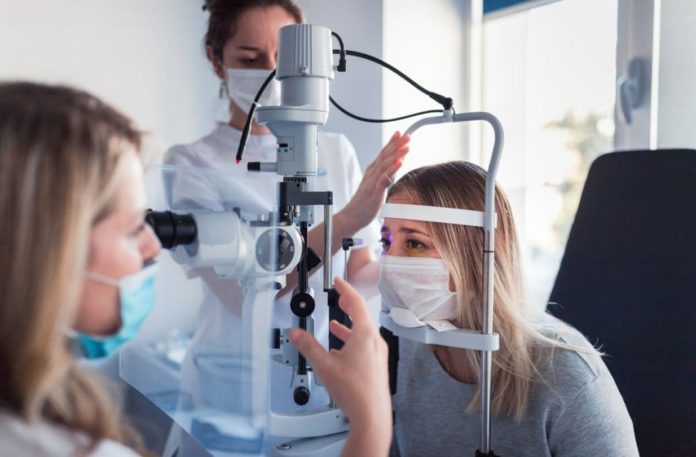A new study published in the open-access journal BMJ Open shows that how a patient is told they have serious eye disease can affect their mental health and ability to deal with their condition in the long run.
Over the course of several decades, a research team at Anglia Ruskin University (ARU) led by Dr. Jasleen Jolly interviewed individuals of all ages who had received an eye illness diagnosis in England and evaluated the psychological effects of the manner their diagnosis was delivered.
People who were interviewed had been diagnosed with conditions like diabetic retinopathy, macular degeneration, Stargardt disease, and retinitis pigmentosa, all of which can lead to significant vision loss.
Four themes emerged from the interviews: the difficulty of getting a diagnosis, the significance of clinicians’ words, the quest for knowledge, and thoughts on how things could be made better.
Many patients had distinct memories of how their condition was revealed to them, including the manner in which they were informed and the manner in which the news was conveyed by the medical expert. This changed how they thought about their blindness and themselves, as well as how they talked to other people.
One person who heard the news said it felt “like being hit with a brick”. Another participant remarked, “It was very brief, very clinical. They literally told me that I had this and in time was slowly going blind. There was no cure” .
Some people had to wait months or even years for a diagnosis after they first noticed something was wrong, which caused them to feel frustrated and anxious. There was a younger patient who said, “You’re told ‘something is wrong, you’re going to have an appointment in 14 weeks to have this test done, you need to wait five or six months for the results.’ Five or six months is a long time when you’re waking up every day, worried, and you’re not sleeping well. And it’s affecting relationships with other people, potentially your job.”
Some patients felt compelled to scour the internet for additional information, which led them to come across inaccurate material and “scare stories” that only served to heighten their worry.
Receiving an eye illness diagnosis can be unexpected and heartbreaking, according to Dr. Jolly, Associate Professor at the Vision and Eye Research Institute (VERI) at Anglia Ruskin University. When a person finds out they can’t see, it’s a very emotional time, and their interactions with clinicians can have a long-lasting effect on how they deal with it. Patients may become confused and frequently go for information from less trustworthy sources if they don’t feel like they’ve received enough information.
“This is one of the first studies to examine how the communication of a diagnosis impacts psychologically on a patient in the long-term,” write the authors, “and we found that the words and demeanour of medical professionals affected a patient’s ability to come to terms with their condition.
“Clinicians should carefully consider how they communicate a diagnosis to patients, how and when they offer information about diagnosis or prognosis, and signpost them to appropriate charities, support systems or counselling services as soon as possible,” add the authors.
“Hospitals need to put in place better support mechanisms, such as more Eye Care Liaison Officers,” according to the study, “to provide information and support to patients, as well as more training on empathetic communication.”
Image Credit: Getty
You were reading: New Research Says Trauma Of Diagnosis Stays With Eye Disease Patients – “Like Being Hit With A Brick”
